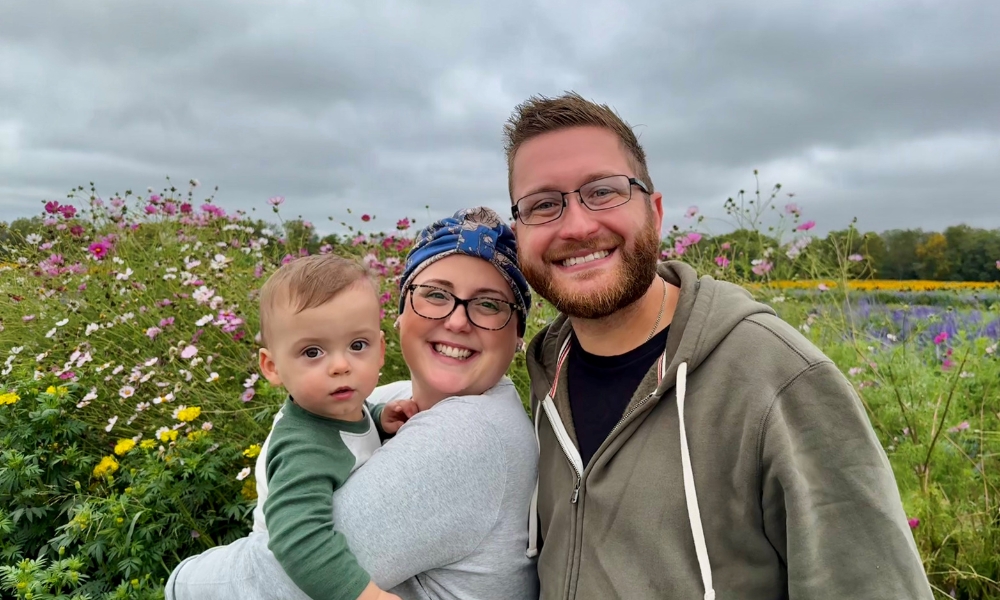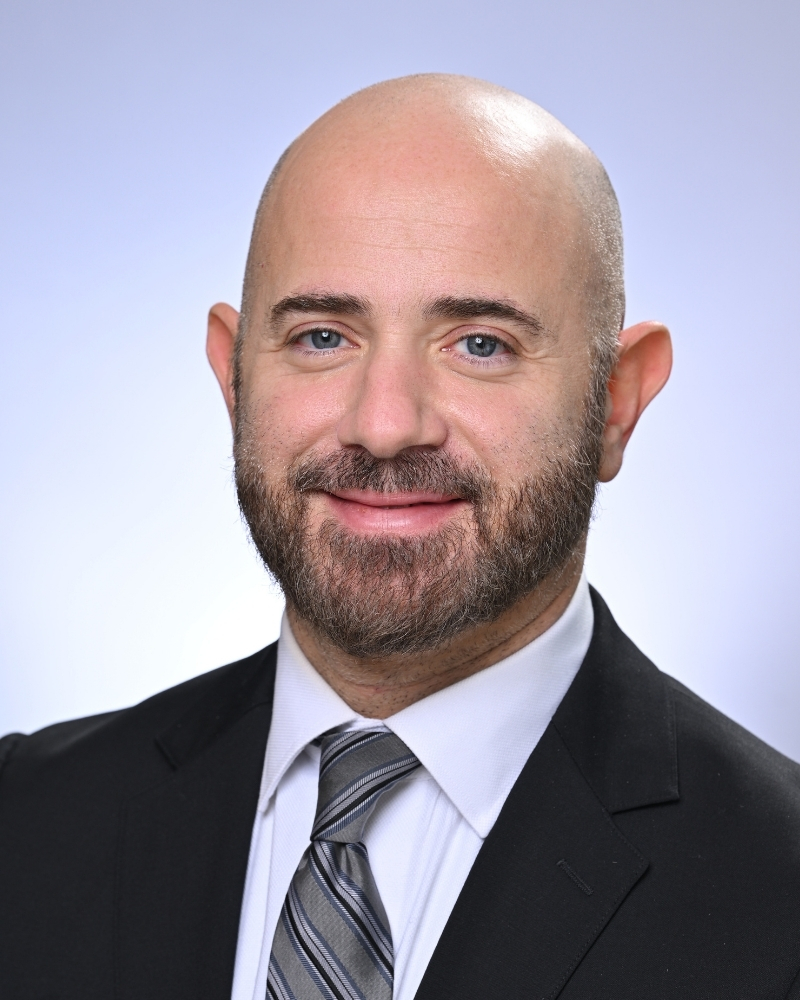At 32 years old, Alyssa Stepneski knew to trust her instincts, even if it meant pushing back against medical test results. Her persistence helped to save her own life.
Alyssa was pregnant when she noticed the skin on her right breast was thicker and pitted, like an orange peel. She was a little concerned, but thought it might be from pregnancy. When the soon-to-be mom went into labor at only 26 weeks, she shelved worries about herself. Rather, she focused on her newborn son, who required care in the Neonatal Intensive Care Unit for three months until he was able to come home.
Once home and settling into the daily routine of life with a newborn, Alyssa noticed that the skin on her breast hadn’t improved, and she knew she had a problem. An ultrasound, then a mammogram, indicated no sign of cancer.
“I wasn’t relieved, because I just knew something was wrong,” Alyssa said. “I’m a Googler, and I knew orange peel was a sign of breast cancer. I just couldn’t let it go.”
She found a breast specialist, who did a biopsy. Unfortunately, Alyssa was right.
She was diagnosed with inflammatory breast cancer – a very rare and aggressive form of cancer when cells clog the breast’s lymphatic vessels and cause skin changes rather than a lump, which is why it doesn’t show up on mammograms or ultrasounds.
“It was an odd sense of relief that I knew what was wrong, but it was also horrifying because I had an 8-month-old baby and stage 3 breast cancer,” Alyssa said. “It looked incredibly hopeless with an awful prognosis. Would I see him go to pre-school? Would I be around for my family?”
Alyssa was able to quickly book an appointment with Elias Obeid, MD, an oncologist and hematologist at St. Joseph’s Health, who often works with young cancer patients. He walked into the visit with a plan and assured her that treatments had improved from the outdated information online.
“Inflammatory breast cancer is one of the more difficult cancers to treat because of its aggressive nature,” Dr. Obeid said. “But we have new protocols in place that have led to successful outcomes, allowing our patients – mostly young women – to live long and healthy lives.”
Alyssa began intense treatment, including chemotherapy and a double mastectomy. She will shortly begin radiation and will receive a full year of immunotherapy. Cancer-free for the past six month, she feels confident that the worst is behind her.
“Dr. Obeid, his plan, and St. Joseph’s saved my life,” Alyssa said. “It’s not easy being the youngest person in the room when you’re getting chemo. But the entire staff, at every step of the way, coordinated my care, managed my medications and symptoms, and made me feel like a normal person, not just a cancer patient.”







